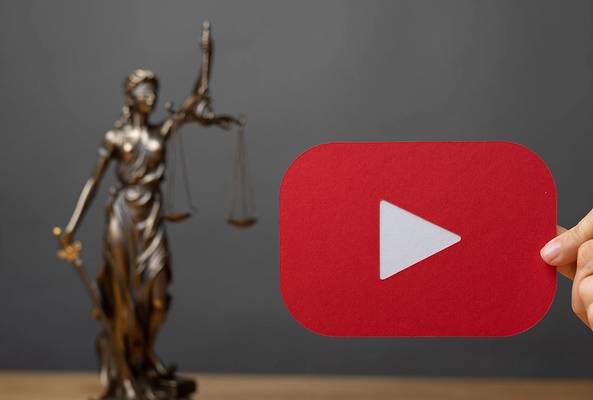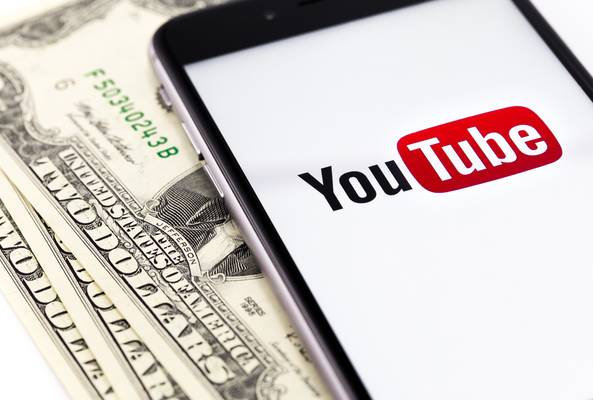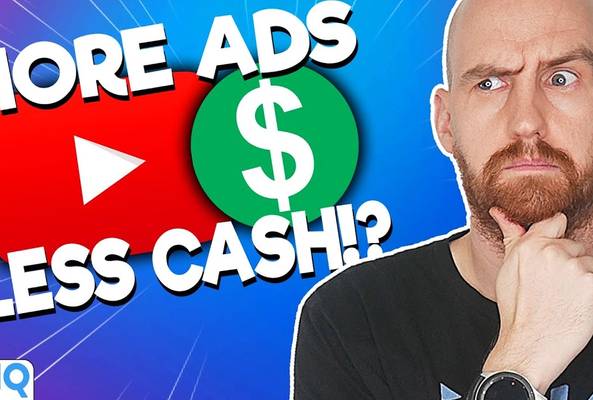Carla Marshall is the Head of Content Marketing at vidIQ. She has 10+ years of experience in video marketing, social media management, content marketing, DRM, and SEO. She was previously Editor in Chief at ReelSEO.com, and as a journalist and video marketer, she's covered news stories, creator journeys, and digital-first publishing initiatives across all the major online video platforms. She is YouTube Certified and a judge for the Shorty Awards, as well as the UK, US, Canadian, Global, and EU Search Awards.
Can I Still Monetize My YouTube Channel If I have a Copyright Claim?
Copyright claims and the effect they have on your ability to monetize your content on YouTube is one of the most asked questions we receive at vidIQ. And I think the reason for that is because YouTube itself doesn’t provide a definitive answer.
Also, if you apply for the YouTube Partner Program and are rejected, YouTube doesn’t give you a thorough enough explanation as to why which also adds to the confusion, if in fact, you do have a strike or claim against one of your videos.
When a creator uses content without the permission of the owner of that content, the creator runs the risk of violating copyright laws.
Now, fair use aside (read more about that defence in the expert's guide to fair use & copyright on YouTube), let's just say you are guilty of using another person's work. YouTube handles this in two different ways: copyright claims and copyright strikes.
Copyright Claims & YouTube
When you receive a copyright claim, YouTube, as a third party, is basically saying that you the creator, can use the copyright owner’s content, but the owner of that copyrighted content has the right to place adverts on your video and earn income from it.
In this case, you the creator are not punished for uploading the content that doesn’t belong to you, but you won’t generate any revenue from that upload.
Copyright Strikes & YouTube
A copyright claim is a lot better than receiving a copyright strike. A strike means the owner of the I.P. you are using (whether that’s a video clip, an image, or audio) isn't playing ball at all. If the owner asserts their rights to their own content, your video will be removed from your channel and you will also receive a copyright strike.
Three copyright strikes and your channel will be terminated. And it might not end there either. In extreme cases, you could find yourself in legal hot water and have to defend yourself in court.
Copyright laws are complicated. To quickly get up to speed on the basics, take time to watch the video below. It’s old in YouTube years but is still one of the very best explanations we’ve seen on the subject:
There are a few more things to clarify. Your channel doesn’t have to be monetized in order to receive copyright claims and copyright strikes.
Even if you have zero subscribers, zero views and it's your very first video, if you have used copyrighted content belongs to another creator, you could get a claim or a strike.
Also, there is no guidebook or directory that's going to tell you whether or not you will get a copyright claim or a copyright strike. You need to use your common sense.
YouTube Copyright Rules & Monetization
The YouTube copyright system isn't something that you can hack, and it's not a game to be played with. If your mindset is, I know the risks, I'm going to use somebody else’s content anyway because I just want to monetize some of mine, then you're probably going to run into problems.
Having said that, there are many creators who’ve probably use copyrighted content unintentionally and now they're worried about whether or not their entire channel is going to be affected when it comes to applying for monetization. So let's look at what YouTube does tell us about applying for the YouTube Partner Program:
The first one being the review process. If you just needed 1000 subscribers and 4000 hours of Watch Time, all of this will be very simple. But to monetize your channel, you also need to comply with YouTube's community guidelines, Terms of Service, copyright guidelines, and Google's ad policies.
Now that's a lot of complicated stuff and requires human input which is why each channel that applies for the YouTube Partner Program must be assessed by a human reviewer, as the platform makes clear:

Not to give humankind a bad rap here but we're not perfect, were rarely consistent and we can't do absolutely everything all at once. Now, of course, a human is going to follow a set of guidelines and protocols from YouTube, and they look something like this:

It's not a complete list of everything that YouTube will review on your channel, but when it comes to the question of copyright affecting your application, ‘Most Viewed Videos,’ and ‘Biggest Proportion of Watch Time’ are probably the two biggest red flags.
For example, let's say you've made 10 videos on your channel and just one of those videos has a copyright claim but that single video accounts for 60% of your Watch Time because it went viral, thanks to the copyright content within that video.
In that case, have you really reached 4000 hours of Watch Time within the spirit of the YouTube monetization program?
On the other hand, let's say a creator has hundreds of videos on their channel and four or five of them have copyright claims but those videos account for just 20 to 30 hours of the channels total Watch Time. The human reviewer at YouTube is probably going to recognize that as nothing to be too concerned about.
__And just to be clear, this is hypothetical, I'm not saying this as fact, I'm just putting myself in YouTube shoes. __
Now some may argue what's wrong with using copyrighted content on my channel. I'm not monetized, but it allows you to put adverts on my videos so that YouTube earns money from it. While in the short term that may be true and it will earn YouTube a few extra bucks, in the long term it degrades the credibility of the platform.
So if you have a copyright claim or a copyright strike on your channel, will you be rejected for monetization? No, but bear in mind copyright strikes are serious offenses.
If your channel has no copyright claims, and no copyright strikes, you'll automatically be accepted into the YouTube Partner Program. Again, no because you've also got to consider all of the other community guidelines you need to adhere to.
As always, when it comes to YouTube, it's never a black or white answer, but let's fast forward to the worst-case scenario. You know, you've got copyright claims on your channel, you apply for monetization and you're rejected. What happens next?
Well, there is a silver lining. You can reapply, but it gets awkward. If you use someone else's content enough to annoy YouTube, they will reject your application via email with the headline reason of either duplication or reuse content.
The frustrating problem from the creator’s point of view is that YouTube won't tell you specifically what's wrong with your channel. They will list a certain video that needs to be removed or tell you that you need to get rid of some copyright claimed videos. You have to work it out. And then 30 days after you were rejected, you can reapply.
Want More Insights Into YouTube?
If you want to more insights into YouTube then make sure to download vidIQ. Over 1 million creators use vidIQ to help with keyword and competitor research, channel audits, and so much more. Click here to install now for free!
And if you’re serious about growing your YouTube views and subscribers, sign up for exclusive access to the vidIQ Academy. Learn how to launch a successful YouTube Channel in just 30 days.



